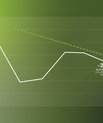AU economists moving up in the world
Aarhus University is enjoying success in the research area of economics New rankings place the university's research in the top 100, and the positive development seems set to continue in the coming years.
Economics research at Aarhus University (AU) is becoming stronger year by year. From a position outside the top 100, AU has now moved up to number 83 in the world. So says the latest edition of the 'Top 100 Worldwide Economics Schools Research Ranking’ from Tilburg University in the Netherlands.
The rankings are based on the number of publications in 36 leading economic journals, and calculations reveal that AU – particularly Business and Social Sciences, where the university's economic research is based – looks set to move even higher up the list over the coming years.
Continuing the good results
Per B. Overgaard, Professor of Economics and Vice Dean for Research and Talent Development at Business and Social Sciences, has analysed the development. He explains that because the rankings utilise what is known as a "rolling average" over 5-year periods, the latest research has not yet achieved its full impact in the period 2007–2011.
"If you look at 2011 in isolation, we are number 62 in the world and number 16 in Europe. This means that our rank is automatically going to improve over the coming years – even if our number of publications remains unchanged."
According to Per B. Overgaard, the rankings would present a more accurate picture if they included all 68 leading economic journals and not just the 36 they are based on today.
"If you were to include the full list of all 68 journals, AU would actually place among the top 50 in the world in 2011," he says.
AU can climb even higher
Despite the fact that the positive development will 'automatically' continue over the coming years, there is no reason for AU to rest on its laurels. As Per B. Overgaard explains, economics research at AU has every opportunity to progress even further.
There are a number of European universities that resemble AU, but which are ranked appreciably higher. One of these is Erasmus University Rotterdam – a publicly financed university in the Netherlands which has access to approximately the same research funds as AU. Nevertheless, this university is placed much higher on the list.
"If we look at those of our competitors that are more or less comparable to us, it is not unrealistic to suggest that AU could be among the top 10 in Europe and the top 30 in the world, even using the same research funds as we have today," says Per B. Overgaard.
The very top rankings are dominated by private universities with access to much greater funding. Per B. Overgaard explains that for AU to capture one of these places, the university would have to gain access to much more research funding through EU funds or increased investment from the business community, for example.
Rankings are only indicators
Rankings intended to measure research quality objectively can be used as indicators and provide hints about the quality. However, they will always feature both strengths and weaknesses, no matter how thoroughly they are prepared.
"You must always view rankings with critical eyes and make sure not to become too focused on minor fluctuations over short periods," remarks Per B. Overgaard.
Of course, the Tilburg rankings must also be viewed critically, for the very reason that they only take into account 36 of the leading economic journals. Nevertheless, there is good reason to celebrate the success AU has achieved because in contrast to other rankings, the Tilburg version only measures research quality within the discipline of economics.
"The distinctive feature of the Tilburg rankings is that they only cover a single research discipline, which means that the assessment is even more accurate than normal. This makes it particularly pleasing that we are moving up this particular list," explains Per B. Overgaard.
Compile your own rankings
The Tilburg rankings feature a "sandbox function" that allows users to experiment with the list and compile their own version on the basis of their own choice of criteria. For example, you can focus on a single area of research in the field of economics by selecting the relevant journals. This makes it possible to see where the universities' individual strengths lie, and to trace development year by year.Click here to try the "sandbox" for yourself.
Facts
- Click here to view the full rankings.
- The 2010 Nobel Prize in Economic Sciences was awarded to Dale T. Mortensen, who has conducted research at AU for many years.
Additional information:

Professor Per Baltzer Overgaard,
Vice Dean for Research and Talent Development
Tel. +45 8715 2175
Mobile: +45 2483 3130
Email: povergaard@econ.au.dk
Web









